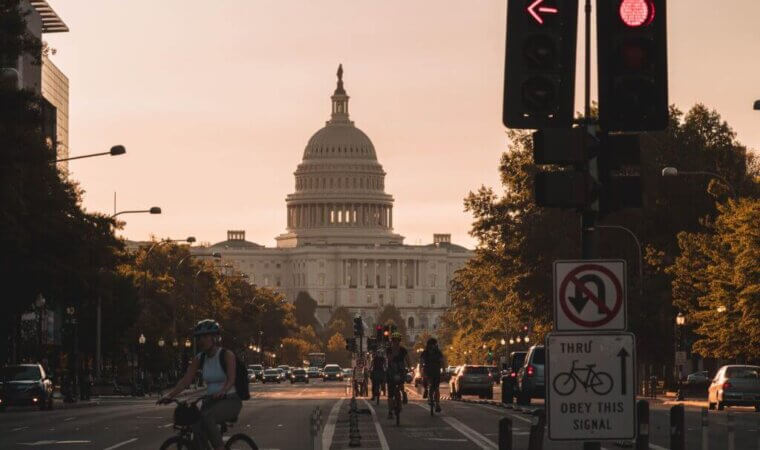When you get into a car accident, your financial situation tends to take a nose dive. Not only are you responsible for expensive hospital bills, but in many cases, you are unable to work due to your injuries. When the car accident attorneys at Gelb & Gelb get involved, our clients are often at a low point in their lives. This makes our job critical at a pivotal moment in your lives. We take it upon ourselves to fight for you. We understand that there is physical, emotional, and financial stress that goes along with a car accident. That is why you might be considering canceling your policy. You may ask yourself whether canceling your policy will affect an open claim. The answer is that canceling your policy will not affect an open claim so long as you cancel the policy after the accident occurs.
But just because it is possible, is it advisable to cancel your policy? Remember, you are required by law to maintain an active auto insurance policy if you own a vehicle. Thus, unless your car is totaled, it is best to keep your policy. However, canceling your policy will still not affect an already opened claim. Why is that? The answer is simple. Your insurance contract was presumably valid and enforceable at the time of the accident. The fact that you cancel your car insurance policy after the accident has no bearing on its enforceability at the time of the accident. This article will explain everything you need to know about canceling your car insurance with an open claim. We discuss the potential risks and the alternatives available to ensure your claim is handled correctly.
Is It Legal to Cancel Your Car Insurance with an Open Claim?
Legally, you can cancel your car insurance anytime, even with an open claim. Although, you should be aware of any premature civil penalties for canceling a contract. Any contract can apply civil penalties or liquidated damages for a breach of contract. While this is uncommon in an insurance contract, it is something to be aware of. Moreover, the opportunity to cancel a car insurance policy does not necessarily mean it is a good idea. First, you may find signing new coverage with a new insurer difficult. They may wish to investigate why you canceled your policy during an investigation. Second, your previous insurer, who covers you for your accident, may treat you worse despite not legally being permitted to do so. Much of how they handle your claim is up to their discretion.
While that is not true for property damage claims, it is the case for the bodily injury portion of your case. Thirdly, you introduce the possibility of gaps in coverage. Not only is it illegal to operate an uninsured vehicle, but it could also leave you unprotected if you get into a subsequent accident. On a related note, you should know that different states have different laws regarding whether you must carry continuous coverage due to legal or financial obligations, such as a car loan.
How Canceling Insurance Affects Your Claim Process

If the accident occurs while your policy is active, your insurer must continue handling the claim. However, the process may not be as seamless as if your policy remained active. You might face slower response times from your insurer as they no longer have an ongoing business relationship. This generally depends on the nature and size of the insurance provider. A larger insurance company may hardly notice you left and be unattached to you as a customer. However, smaller insurance companies may notice and can certainly take it personally. Furthermore, in our experience, many insurance adjusters do not fully understand the law. They may claim that they no longer owe you coverage even though they do. This presents a good time to retain an attorney to explain to the adjuster that you are still entitled to coverage.
Additionally, in our over 70 years of practice and thousands of cases, we have seen countless instances where a client gets into an accident, subsequently cancels their policy due to the financial burden, and gets into yet another accident. However, no coverage is available in that accident, and the plaintiff is unprotected. This is a problem regardless of who is at fault. If you are at fault, your personal assets may be vulnerable if there is a judgment against you. And even if the other driver is at fault, often there is no coverage on the other vehicle, or it is stolen. In such a scenario, you must make an uninsured motorist claim to recover compensation. However, you cannot do so if you do not have your coverage.
What Happens to Your Premiums and Coverage After Cancelation?
Your premium payments stop once you cancel your car insurance policy and your coverage is terminated. For the open claim, the insurance company is still responsible for handling and paying out the claim for the accident while the policy is active. However, if you had rental car coverage, that would no longer be available under most insurance contracts despite the accident occurring while your policy was still active. This is because your needs for the rental car are dated at a time when your contract is no longer active. This is why speaking to an attorney before canceling your policy is best.
Additionally, many insurance companies do not offer refunds for premiums already paid in advance, and some may charge a cancellation fee. To understand all options, it is best to communicate with your insurance company and an attorney.
Alternatives to Canceling Your Car Insurance During an Open Claim
Car insurance is mandatory in almost every state in the country. We understand that auto insurance is a nuisance to pay each month. However, it protects you and is required. Thus, we have compiled a list of alternatives to canceling your policy that will hopefully provide assistance.
- Reduce your coverage.
- Switch to a new insurance provider that may cost less.
- Request a payment plan.
- Pause non-essential coverage. This may include personal injury protection, medical payment coverage, rental insurance coverage, gap insurance, and more. Meanwhile, you still get to keep property damage and bodily injury coverage.
- Increase deductibles. While sounding counter-intuitive, this can lead to lower premiums while maintaining coverage.
- Shop around for discounts. There are nearly 2,500 insurance companies in the United States. While some are certainly better for customers, others also charge less.
Steps to Take if You Decide to Cancel Your Car Insurance
If you decide to cancel your car insurance, ensure it complies with your state laws and is the best option available for you. If you are uninterested in any of the abovementioned alternatives, consider following these steps to cancel your policy.
- Contact your insurance provider.
- Confirm ongoing claim handling.
- Get written confirmation. An email should suffice.
- Immediately secure new insurance coverage.
- Understand fees and potential refunds.
- Check state insurance requirements.
- Update vehicle registration.
- Keep your records organized.
Speak to a Personal Injury Lawyer Today
Our Maryland and DC car accident lawyers have practiced personal injury law for over 70 years. If you are injured in an accident, call our office today for a free consultation.
Our number is (202) 331-7227, available 24/7.













